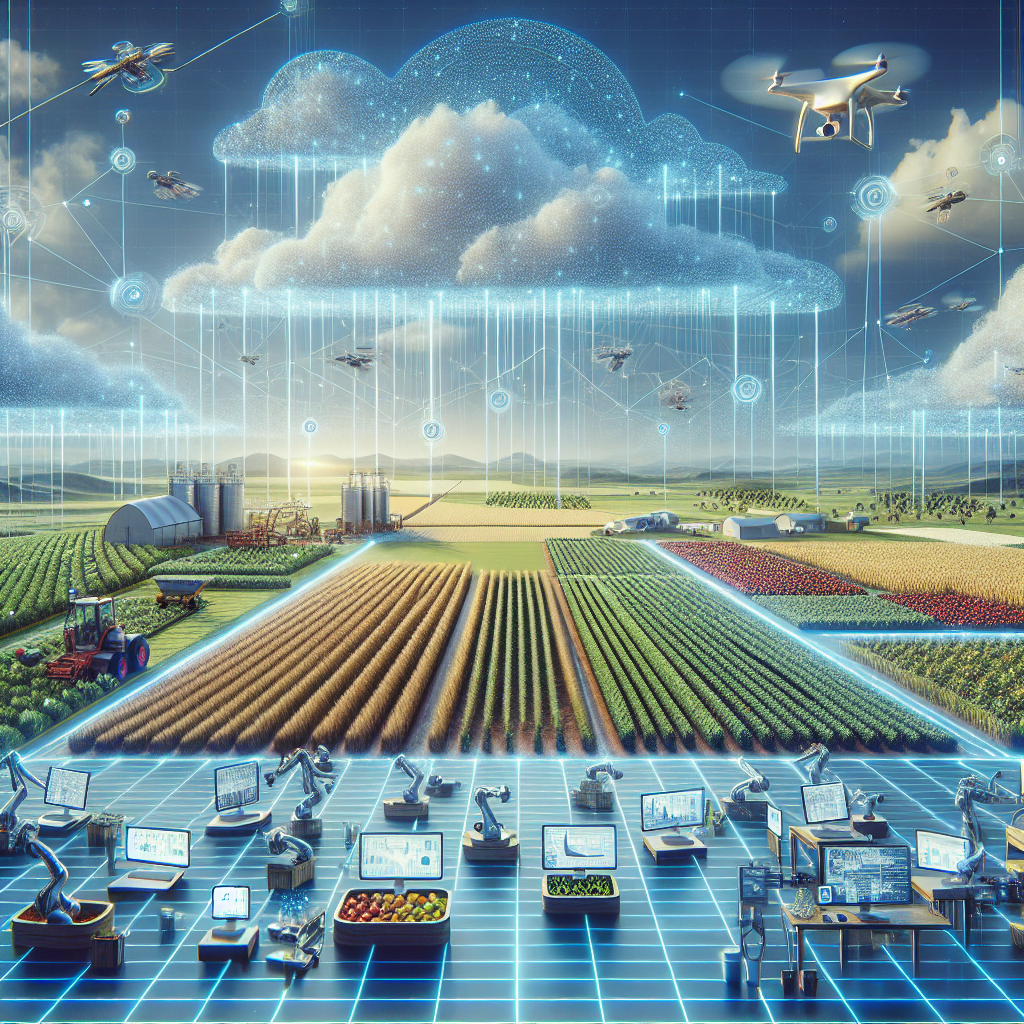The agricultural industry is continually evolving, with new technologies being developed to improve efficiency, productivity, and sustainability. One area where technology is making a significant impact is in optimizing agricultural supply chains and logistics through the use of artificial intelligence (AI). AI is revolutionizing the way farmers, suppliers, and distributors manage their operations, from planting and harvesting to storage and distribution. In this article, we will explore how AI is transforming the agricultural industry’s supply chain and logistics and the potential benefits it offers.
AI in Agricultural Supply Chains
Agricultural supply chains are complex networks of activities that involve multiple stakeholders, including farmers, suppliers, distributors, retailers, and consumers. Managing these supply chains efficiently is crucial to ensure the timely delivery of high-quality products to the market. AI technologies, such as machine learning, predictive analytics, and automation, are being used to optimize various aspects of agricultural supply chains, including production planning, inventory management, transportation, and distribution.
One of the key benefits of using AI in agricultural supply chains is the ability to improve forecasting accuracy. By analyzing historical data, weather patterns, market trends, and other relevant factors, AI algorithms can predict demand more accurately, allowing farmers and suppliers to plan their production and distribution activities more effectively. This can help reduce waste, minimize stockouts, and improve overall supply chain performance.
AI can also be used to optimize inventory management by identifying patterns and trends in demand, supply, and pricing. By analyzing data in real-time, AI systems can recommend optimal inventory levels, reorder points, and storage locations, ensuring that farmers and suppliers have the right amount of products in the right place at the right time. This can help reduce carrying costs, minimize stockouts, and improve customer satisfaction.
Another application of AI in agricultural supply chains is in transportation and logistics. AI-powered algorithms can optimize transportation routes, schedules, and modes of transportation to minimize costs, reduce delivery times, and improve efficiency. By analyzing traffic patterns, weather conditions, and other factors, AI systems can help farmers and suppliers make informed decisions about how to transport their products most effectively.
Overall, AI has the potential to transform agricultural supply chains by enabling better decision-making, reducing costs, improving efficiency, and enhancing sustainability. By harnessing the power of AI technologies, farmers, suppliers, and distributors can optimize their operations, increase their competitive advantage, and meet the growing demand for high-quality, sustainable agricultural products.
Benefits of Using AI in Agricultural Supply Chains and Logistics
There are several key benefits of using AI in agricultural supply chains and logistics, including:
1. Improved Forecasting Accuracy: AI algorithms can analyze vast amounts of data to predict demand more accurately, helping farmers and suppliers plan their production and distribution activities more effectively.
2. Optimized Inventory Management: AI systems can recommend optimal inventory levels, reorder points, and storage locations, ensuring that farmers and suppliers have the right amount of products in the right place at the right time.
3. Enhanced Transportation and Logistics: AI-powered algorithms can optimize transportation routes, schedules, and modes of transportation to minimize costs, reduce delivery times, and improve efficiency.
4. Better Decision-Making: AI technologies can provide farmers, suppliers, and distributors with real-time insights and recommendations, enabling them to make informed decisions about how to optimize their operations.
5. Increased Efficiency: By automating repetitive tasks and optimizing processes, AI can help reduce manual labor, streamline operations, and improve overall supply chain performance.
6. Enhanced Sustainability: AI can help farmers and suppliers reduce waste, minimize environmental impact, and promote sustainable agricultural practices.
Overall, AI has the potential to transform agricultural supply chains and logistics by enabling better decision-making, reducing costs, improving efficiency, and enhancing sustainability. By leveraging the power of AI technologies, the agricultural industry can drive innovation, competitiveness, and growth in the rapidly evolving global market.
Frequently Asked Questions (FAQs)
Q: What is artificial intelligence (AI) and how is it used in agriculture?
A: Artificial intelligence (AI) is a technology that enables machines to learn from data, make decisions, and perform tasks that typically require human intelligence. In agriculture, AI is used to optimize supply chains and logistics by analyzing data, predicting demand, optimizing inventory, and improving transportation and logistics.
Q: How does AI improve forecasting accuracy in agricultural supply chains?
A: AI algorithms can analyze historical data, weather patterns, market trends, and other factors to predict demand more accurately, enabling farmers and suppliers to plan their production and distribution activities more effectively.
Q: What are the benefits of using AI in agricultural supply chains and logistics?
A: AI can improve forecasting accuracy, optimize inventory management, enhance transportation and logistics, enable better decision-making, increase efficiency, and promote sustainability in agricultural supply chains.
Q: How can farmers and suppliers leverage AI technologies to optimize their operations?
A: Farmers and suppliers can leverage AI technologies by implementing AI-powered systems and algorithms to analyze data, predict demand, optimize inventory, and improve transportation and logistics.
In conclusion, AI is revolutionizing the agricultural industry by transforming supply chains and logistics through advanced technologies and algorithms. By harnessing the power of AI, farmers, suppliers, and distributors can optimize their operations, increase efficiency, and enhance sustainability in the rapidly evolving global market.

